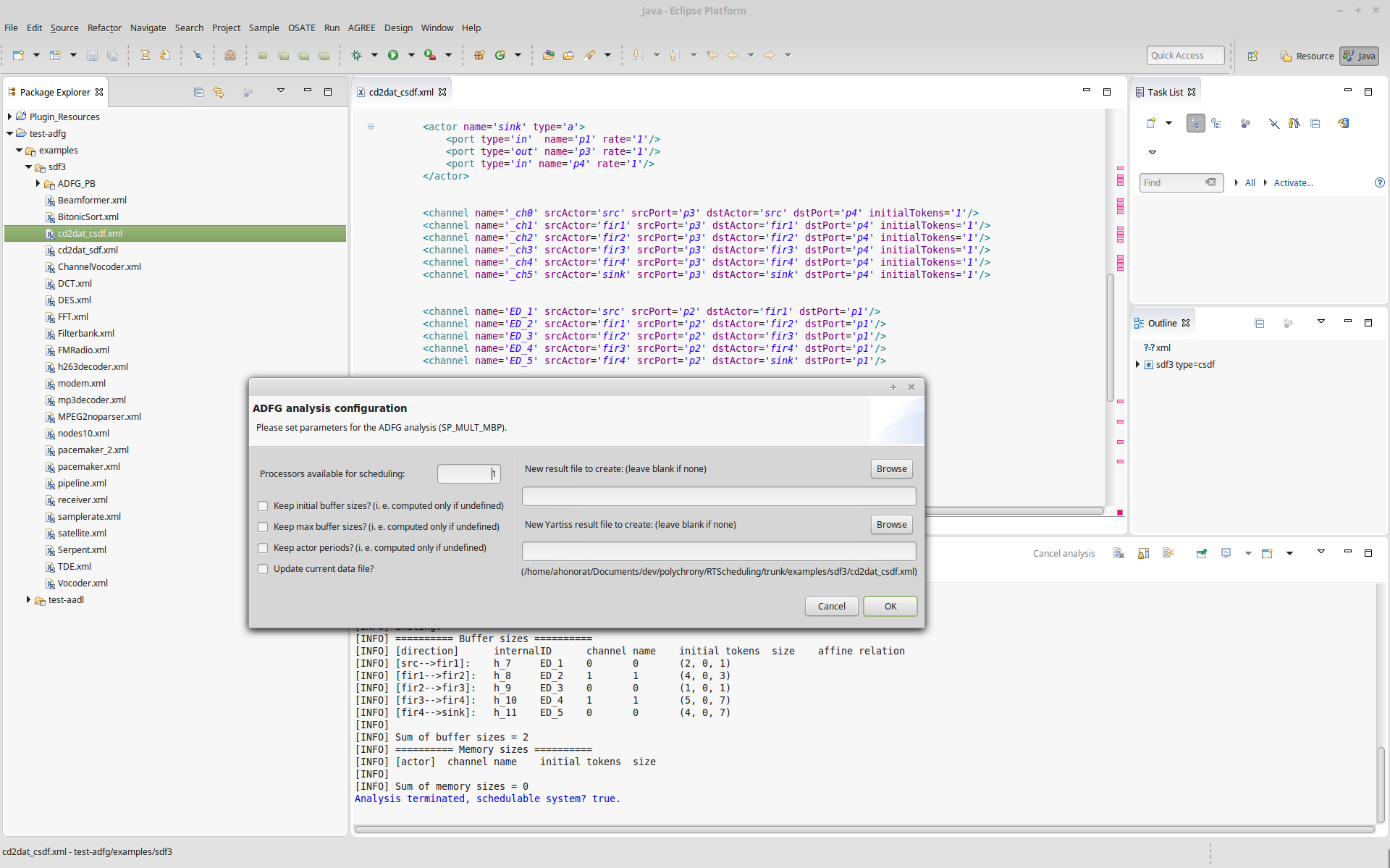Section: New Results
ADFG: Affine data-flow graphs scheduler synthesis
Participants : Loïc Besnard, Thierry Gautier, Alexandre Honorat, Jean-Pierre Talpin, Hai Nam Tran.
We consider with ADFG (Affine DataFlow Graph) the synthesis of periodic scheduling parameters for real-time systems modeled as ultimately cyclo-static dataflow (UCSDF) graphs [14]. This synthesis aims for a trade-off between throughput maximization and total buffer size minimization. The synthesizer inputs are: a UCSDF graph which describes tasks by their Worst Case Execution Time (WCET), and directed buffers connecting tasks by their data production and consumption rates; the number of processors in the target system and the real-time scheduling synthesis algorithm to be used. The outputs are the synthesized scheduling parameters: the tasks periods, offsets, processor bindings and priorities, and the buffers initial marking and maximum sizes.
ADFG was originally the implementation of Adnan Bouakaz's work (Real-Time Scheduling of Dataflow Graphs. A. Bouakaz. PhD Thesis, University of Rennes 1, 2013.). However the tool had not been packaged yet to be easily installed and used. Moreover, code refactoring led to improve the theory, and to add new features. Firstly, more accurate bounds and Integer Linear Programming (ILP) formulations have been used. Besides, dataflow graphs do not need to be weakly connected for EDF policy on multiprocessor systems. The new implementation also avoids to use a fixed parameter for some multiprocessor partitioning algorithms, now an optional strategy enables to compute it. Finally implementation has been adapted to standard technologies to be more easily installed and used. As the synthesizer evolved a lot, new evaluations have been made. Moreover, many scheduled examples have been simulated with Cheddar (The Cheddar project: a GPL real-time scheduling analyzer.http://beru.univ-brest.fr/~singhoff/cheddar/), which provides pertinent metrics to analyze the scheduling efficiency.
ADFG is being extended to investigate and solve the scheduling problem of dataflow programs on many-core architectures. These architectures have distinctive traits requiring significant changes to classical multiprocessor scheduling theory. There is a high number of contention points introduced by novel memory architectures and new interconnect types such as Network-on-Chip. Two solutions are proposed and implemented in ADFG: contention-aware and contention-free scheduling synthesis. We either take into account the contention and synthesize a contention-aware schedule or find a schedule that results in no contention.



